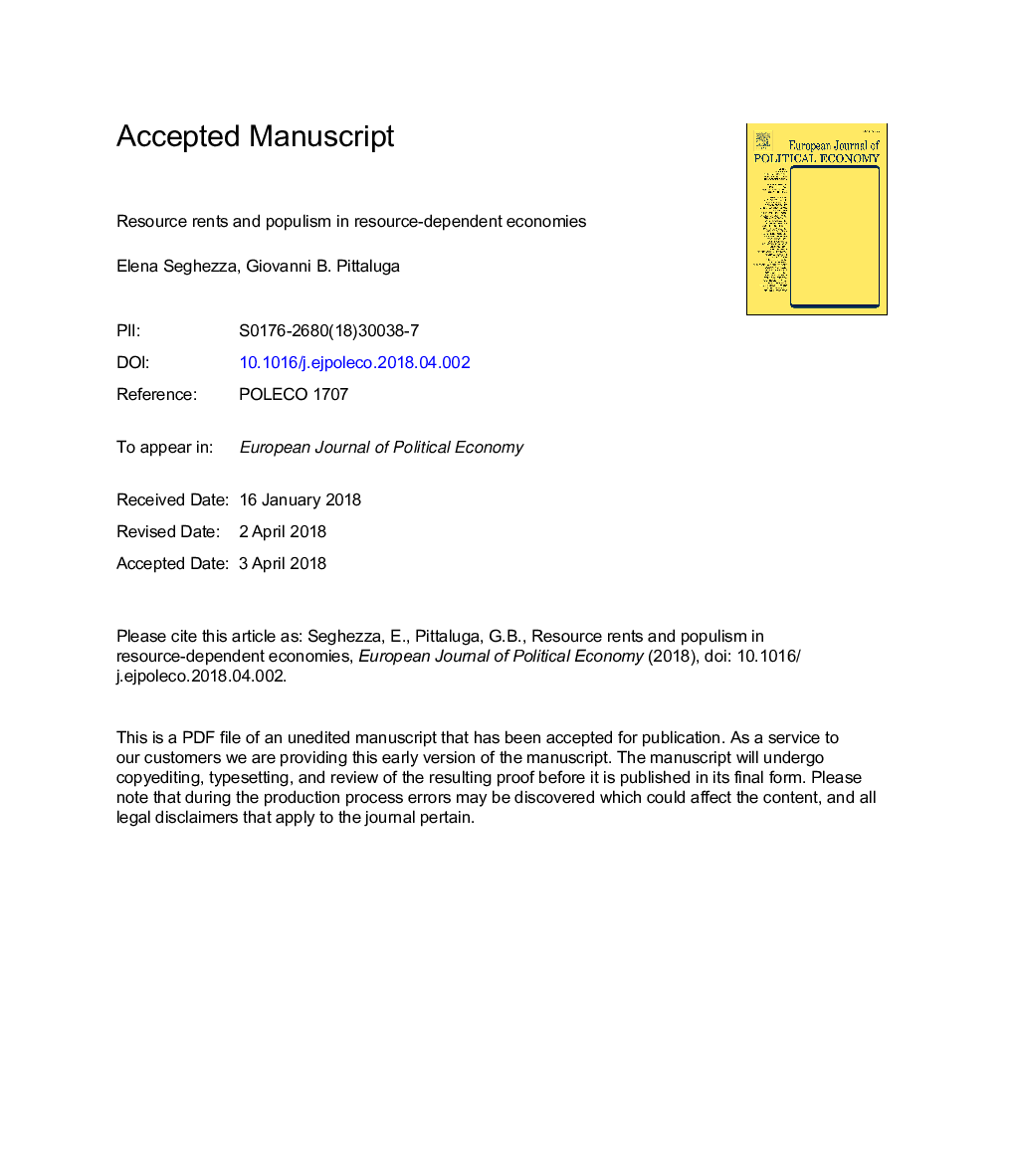| Article ID | Journal | Published Year | Pages | File Type |
|---|---|---|---|---|
| 11016154 | European Journal of Political Economy | 2018 | 16 Pages |
Abstract
A common explanation for populism is the existence of autocratic institutions, with an autocratic regime dispelling opposition by distributing income to the 'masses' in the manner of the 'bread and circuses' of Imperial Rome. In Bolivia, Ecuador, and Venezuela, populist redistribution occurred however in conjunction with weakening of democratic institutions. We associate populist redistribution with resource rents available in the course of the commodity price cycle. When domestic production is predominantly natural resources, other industry interests are ineffective in opposing populist redistribution and preventing the undermining of democracy. Rather than associating populism with preexisting autocracy as others have done, we show empirically that, in the cases we study, resource rents facilitated populism that allowed regime change whereby authoritarian institutions were created.
Related Topics
Social Sciences and Humanities
Economics, Econometrics and Finance
Economics and Econometrics
Authors
Elena Seghezza, Giovanni B. Pittaluga,
